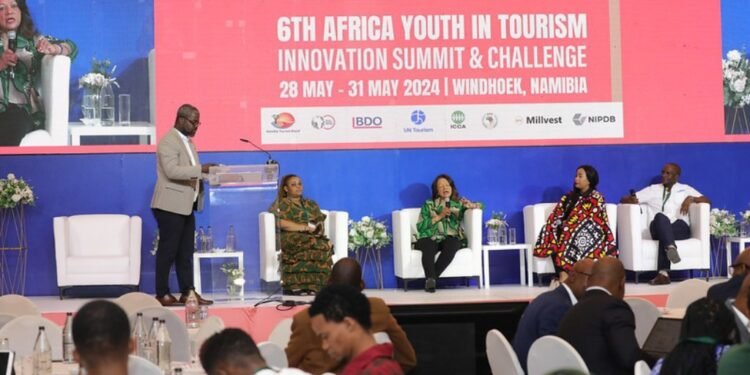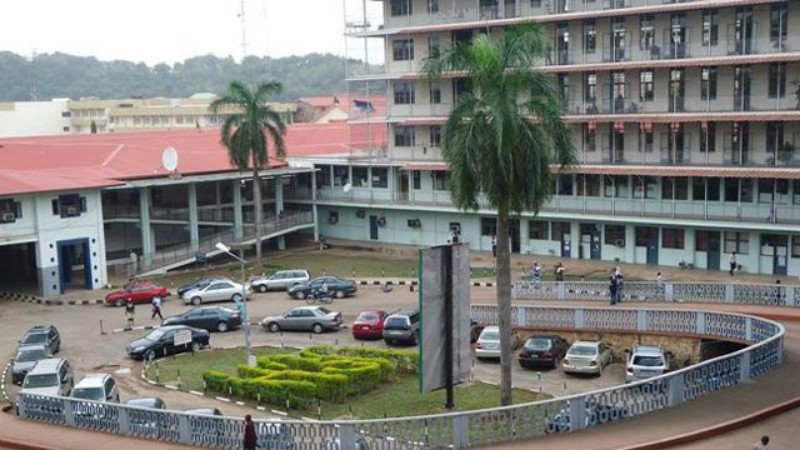The Africa Youth in Tourism Innovation Summit and Challenge (AYTIS) has continued to propel sustainable advancement of the tourism industry in Africa with a huge investment in the youths.
The summit has consistently focused on making tourism smarter by celebrating innovation and leading the digital transformation of the sector; making tourism more competitive at every level through promoting investment and entrepreneurship; creating more and better jobs and providing relevant training.
AYTIS is also building resilience and promoting safe and seamless travel; and harnessing tourism’s unique potential to protect cultural and natural heritage and to support communities both economically and socially.
Africa Tourism Partners (ATP) host the annual Youth initiative with the UN Tourism and BDO South Africa. Since its inception in 2019 in Durban, it has been hosted by the governments of Ghana (Ghana Tourism Authority in 2020); Rwanda (Rwanda Development Board, Rwanda Convention Bureau and Mastercard Foundation in 2021) and the Government of Namibia (Ministry of Environment, Forestry and Tourism in 2022).
The 2024 edition of the AYTIS commenced at Mercure Hotel, Windhoek, Namibia on Tuesday, 28 May, 2024. The three-day event, which was the sixth edition of the AYTIS, started with an Entrepreneurship Masterclass and Intra-Africa Trading Day.
AYTIS is an exclusive platform provided to innovative African youth in travel and tourism looking for funding, partnership and mentorship opportunities. This year marks the sixth edition of the summit and the final host by the Government of Namibia.
Various speakers and stakeholders in the tourism sector, in their remarks and messages, spoke extensively at the sixth edition of the AYTIS Challenge.
 Secretary General of the UN Tourism, Zurab Pololikashvili, praised the outstanding dedication of the government of Namibia and Africa Tourism Partners, particularly its Chief Executive Officer, (CEO), Mr. Kwakye Donkor, for their exceptional work in hosting the annual summit.
Secretary General of the UN Tourism, Zurab Pololikashvili, praised the outstanding dedication of the government of Namibia and Africa Tourism Partners, particularly its Chief Executive Officer, (CEO), Mr. Kwakye Donkor, for their exceptional work in hosting the annual summit.
Pololikashvili, who reaffirmed the steadfast commitment of UN Tourism to nurturing young talent and fostering innovation within the tourism sector, described the AYITS as a testament to the transformative power of youth engagement and innovation, noting that both are integral to the UN Tourism vision for the future of tourism in Africa.
The UN Secretary General also disclosed that the summit’s main themes of innovation, education, and youth empowerment align seamlessly with the UN Tourism core priorities.
Pololikashvili then urged participants to embrace the opportunities being presented through the various initiatives provided by this forum, saying: “Engage in the entrepreneurship masterclasses and innovation startup competitions as these platforms offer more than just educational resources and networking opportunities, they serve as springboards for transformative ideas.
“As you actively participate and leverage these resources you have the opportunity and chance to help shape the future of African tourism and contribute to the sector’s sustainable growth.”
Minister of Environment, Forestry and Tourism, Namibia, Honourable Pohamba Penomwenyo Shifeta, MP, described the African Youth Summit as a platform for the young people to explore and develop actionable solutions that will shape the future of the tourism sector in the African Continent.
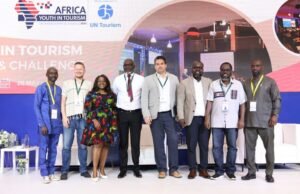
The Namibia Minister of Environment, Forestry and Tourism disclosed that the travel and tourism industry, a significant contributor to Africa’s economy, must harness these drivers to create sustainable and inclusive growth.
Shifeta noted that the Ministry of Environment, Forestry and Tourism, under his leadership, has successfully and proudly hosted the last three editions of this auspicious event which aims to empower the African youth in tourism with the necessary skills as we move toward the 5th Industrial Revolution. He urged the Namibian and African youth at large to take space in the tourism sector, especially in technological innovation, and embrace the Africa continental trade initiative.
The CEO of the Africa Tourism Partners, South Africa, Kwakye Donkor, disclosed that the summit has connected and brought together over 2500 African youths and over 500 tourism and affiliated industry professionals and policy-makers from over 40 countries, physically or virtually, since inception in Durban, in 2019.
Donkor also announced that ATP and its network of partners have developed this specialised youth in tourism marketplace to assist tourism start-ups, entrepreneurs, small businesses, and young people in tourism.
“The purpose is for attendees to interact, engage, conduct business, share expertise, and encourage one another through creativity. Our one-on-one career advising and development clinic, led by experienced and renowned professionals, academics, policymakers, and experts, is critical to achieving this.
“This has also created several economic prospects for youngsters in tourism through innovation such as mentorship, coaching, the formation of value-based business partnerships, and government backing,” Donkor said.
During the discussion and submission session of the three-day event, professionals and stakeholders in the tourism, business and technology industries provided insight in to issues bothering on technological innovation and start-up funding in tourism.
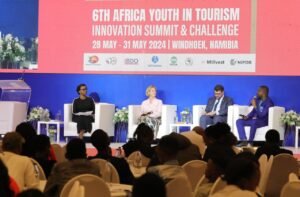 Issues, such as unravelling the layers of travel technological innovation and commercial opportunities through problem-solving and demystifying start-up funding as the barrier to navigating the path to innovation and success, were well discussed with provable solutions to challenges in the industry.
Issues, such as unravelling the layers of travel technological innovation and commercial opportunities through problem-solving and demystifying start-up funding as the barrier to navigating the path to innovation and success, were well discussed with provable solutions to challenges in the industry.
The need for partnership and the interplay between academia and the world of work was also emphasised, highlighting that tourism needs soft skills which cannot be taught at school, buttressing the saying that “there is a need for education that goes beyond the classroom.”
The various speakers, while urging youths in tourism to make use of online resources to empower themselves, concluded that “if you want to change the world and the youth, change the way you educate them.”
Discussing the topic “Enhancing Youth Employability In Global Tourism And Aviation,” the first panel for the day, faculty speakers noted that the global tourism and aviation industries offer diverse career opportunities, from hospitality management to flight operations.
To boost youth employability in these sectors, the faculty speakers emphasised the need to focus on different pathways and provide comprehensive career guidance, noting that aviation is exciting and is more than just being a pilot. The speakers charged participants to foster the dedication and remain determined until they reach their desired goal, while also encouraging them to seize opportunities immediately.
This was as the employability clinic, with experts and speakers, provided additional career advice and networking opportunities.
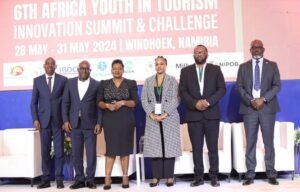
The second panel was on “Leveraging Intra-Africa Travel for AfCFTA Benefits”. The panel discussed the potential of intra-Africa travel to enhance the commercial benefits of the African Continental Free Trade Area (AfCFTA). By making travel easier and more affordable, the second panel noted that AfCFTA can create unprecedented opportunities for youth and women in cross-border business, entrepreneurship and employment.
The panel highlighted the significant strides being made to connect Africa and facilitate trade through AfCFTA, promoting greater market access, innovation, and the exchange of ideas and skills. They also touched on the immigration challenges Africans are faced with.
On the “Youth Entrepreneurship through Sustainable Tourism,” the third panel for the day disclosed that advancing youth entrepreneurship through natural and cultural heritage-based sustainable tourism can drive economic and community development.
The panel emphasised the potential for young entrepreneurs to harness unique cultural and environmental assets to create authentic, eco-friendly tourism experiences that celebrate and preserve local heritage. “Everything we have as Africans is right here at home, it is within us, around us, in our homes and our DNA,” the third panel declared.
The fourth panel at the 2024 AYTIS discussed “Transforming Knowledge for Africa’s Future with Innovation and Technology”. It noted the critical role of embracing AI and disruptive technologies in transforming Africa’s tourism landscape. It educated African youths that accessing the disruptive technologies is paramount.
The panel also advised youths on leveraging opportunities, such as the tourism summit, to develop business relationships and encouraged youth to think creatively while actively participating in the process. The speakers enlightened participants that forward-thinking approach would help to equip the next generation with the skills needed to drive innovation and economic growth across the continent.
The four-day event was well moderated by Linda Mupapa, a talented Master of Ceremony (MC) who captivated the audience with her scintillating aura, whetting their appetite for more. Her linguistic proficiency and her natural ability to control the crowd and put people at ease.















